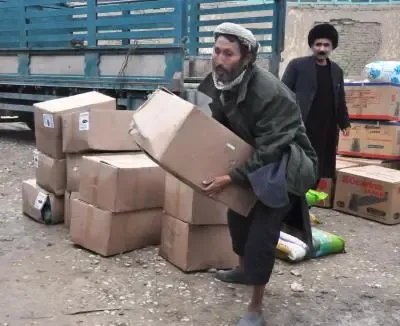Why Are Western Nations Renewing Their Push for Nuclear Talks with Iran?

Synopsis
Key Takeaways
- Iran's Foreign Minister calls for diplomatic negotiations.
- Military actions by the West have failed to achieve their goals.
- Iran's technological capabilities remain unharmed.
- Diplomacy is viewed as the key solution for regional disputes.
- The current international environment reflects anti-international law policies.
Tehran, Nov 17 (NationPress) Iran's Foreign Minister Seyed Abbas Araghchi stated on Sunday that Western nations have resumed their pleas for dialogue concerning Tehran's nuclear initiatives following their failure to meet their objectives through recent military operations, according to media reports.
Araghchi remarked that the calls for negotiations were expected after Western powers failed to achieve their intentions regarding Iran's nuclear program via military assaults. He emphasized that there is no military resolution to the ongoing conflict.
He asserted that Iran would reject any negotiations conducted under pressure, insisting that discussions must be rooted in logical and reasonable principles instead of bullying tactics, as reported by Xinhua news agency.
According to Araghchi, both the US and Israel have not succeeded in reaching any of their aims through the recent hostilities, adding that while air strikes could harm nuclear facilities, they cannot obliterate Iran's technological capabilities or the determination of its populace.
He expressed, "Our facilities may have been damaged, but our technology remains intact, and our resolve is stronger than ever."
He also mentioned that Iran has consistently been open to meaningful negotiations under appropriate conditions, reiterating that diplomacy is the key solution for resolving disputes in the region.
Previously, Iran and the US engaged in five rounds of indirect talks mediated by Oman regarding the nuclear issue and US sanctions relief, preparing for a sixth round just before Israel's significant airstrikes on June 13 targeting nuclear and military sites in Iran, resulting in the deaths of high-ranking commanders, nuclear scientists, and civilians.
On June 22, US forces attacked Iranian nuclear facilities located at Natanz, Fordow, and Isfahan.
In addition, Iran's Foreign Minister on Sunday accused the US and several allied nations of attempting to establish a force-based international order.
Addressing an international conference titled "International Law under Attack: Aggression and Defence" in Tehran, he noted that the current global landscape embodies the anti-international law policies promoted in recent years by Washington and its allies, favoring a West-centric order marketed as a rules-based international structure rather than a law-based one.
He added that war and violence have become commonplace in international relations, with certain governments now routinely depending on military force as a foreign policy tool.
The Minister criticized the US for its reckless and unrestrained use of force, arguing that its continuous undermining of international law is indicative of "the law of the jungle." He stressed that such a stance is unsustainable.









